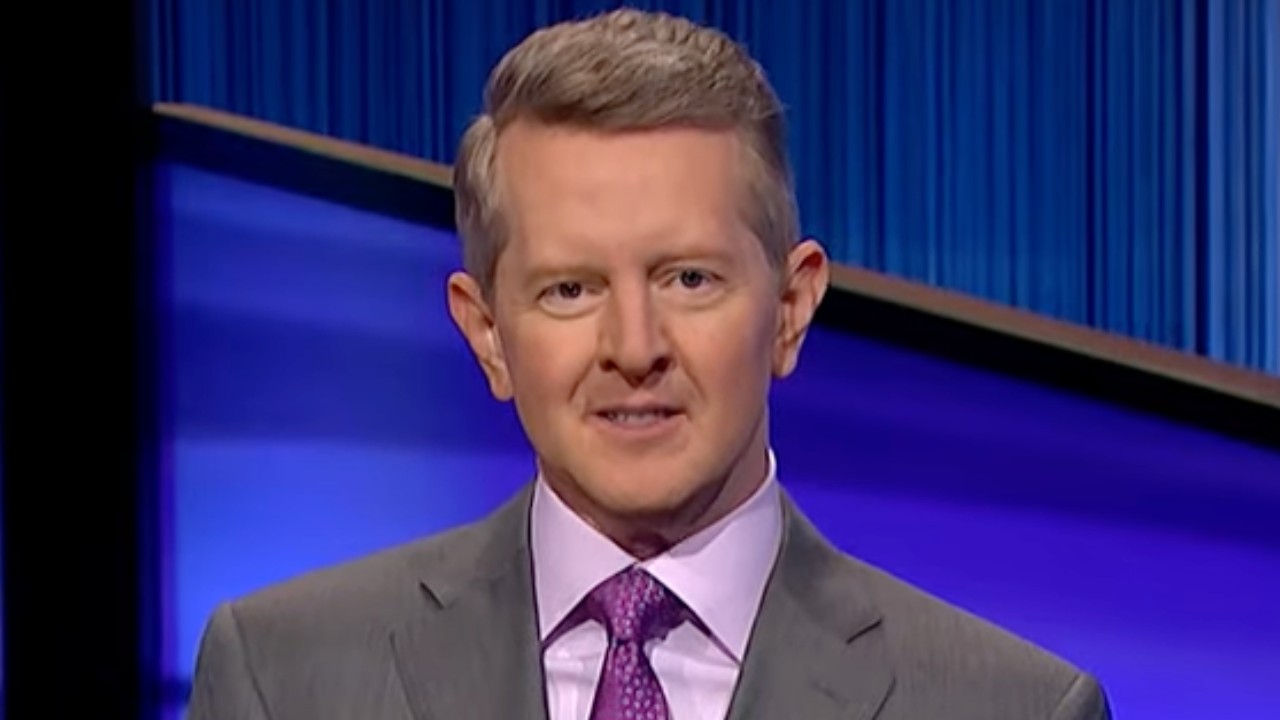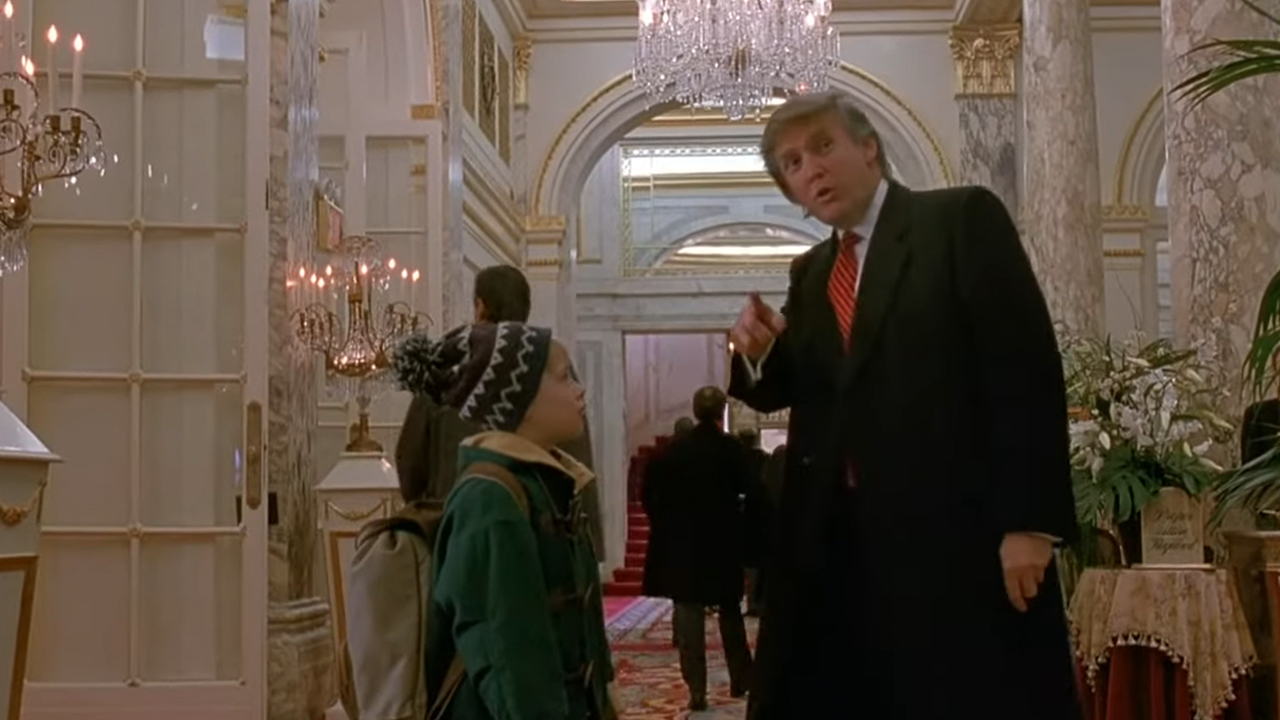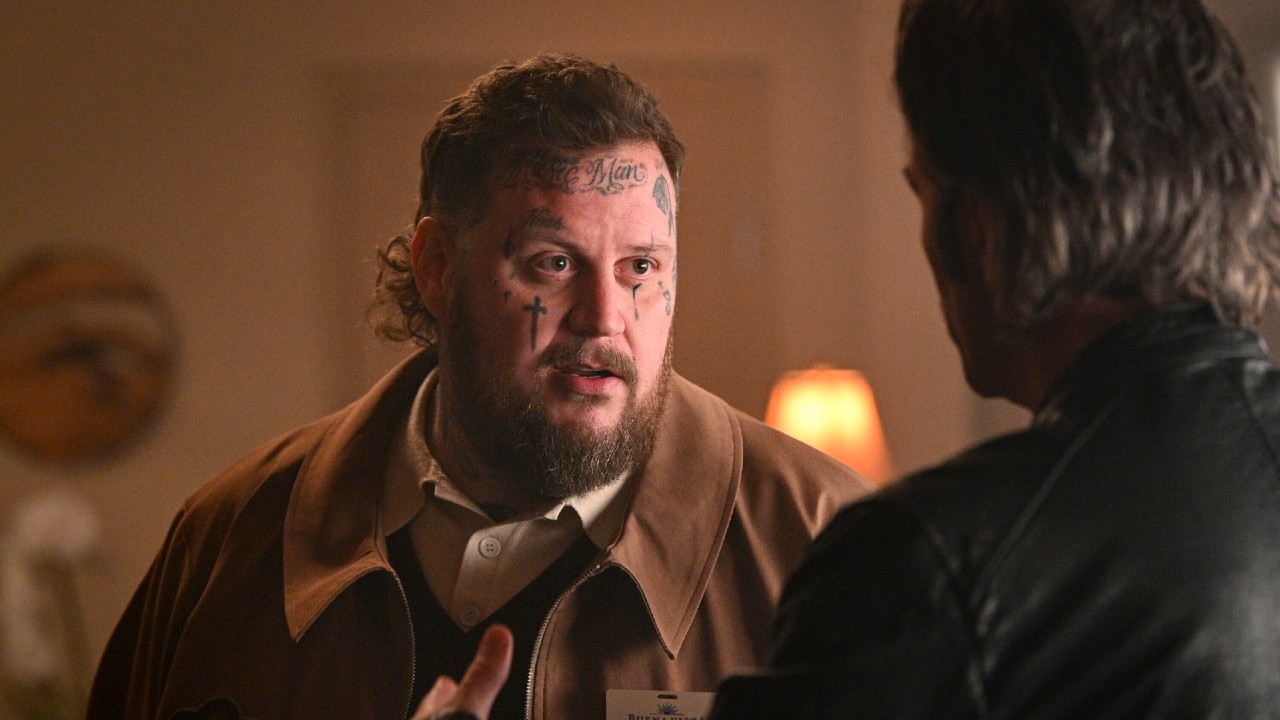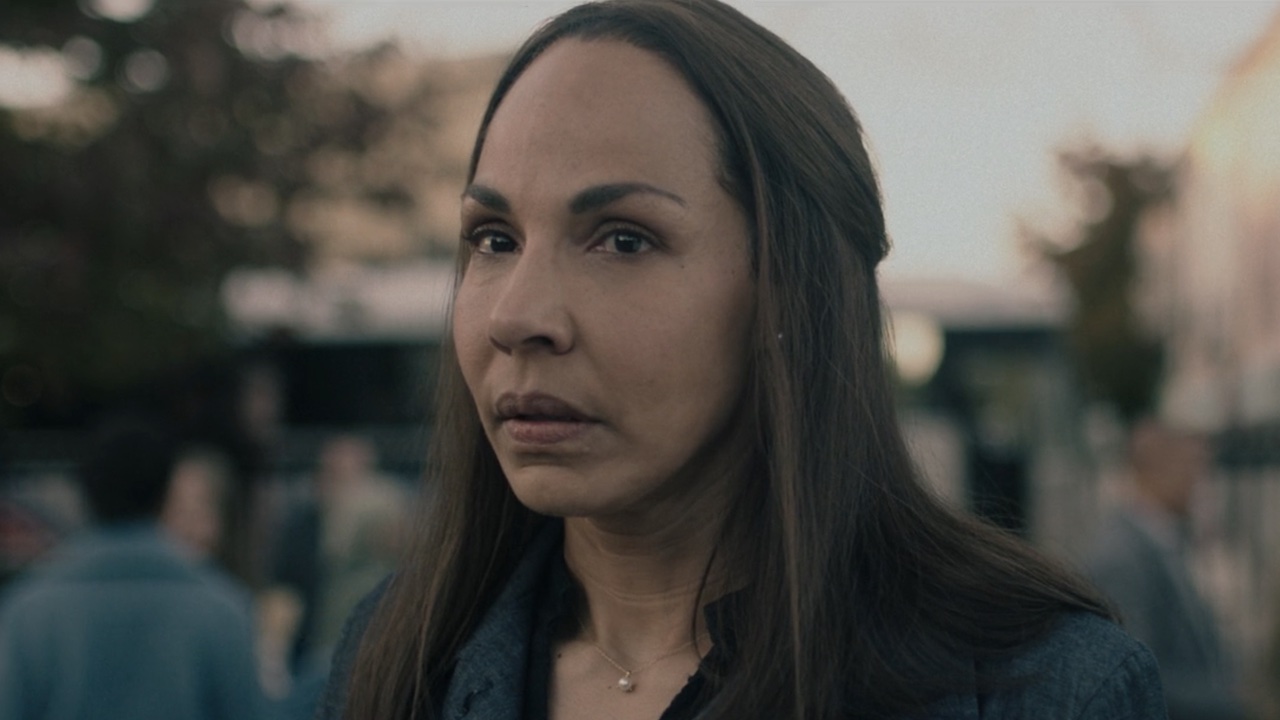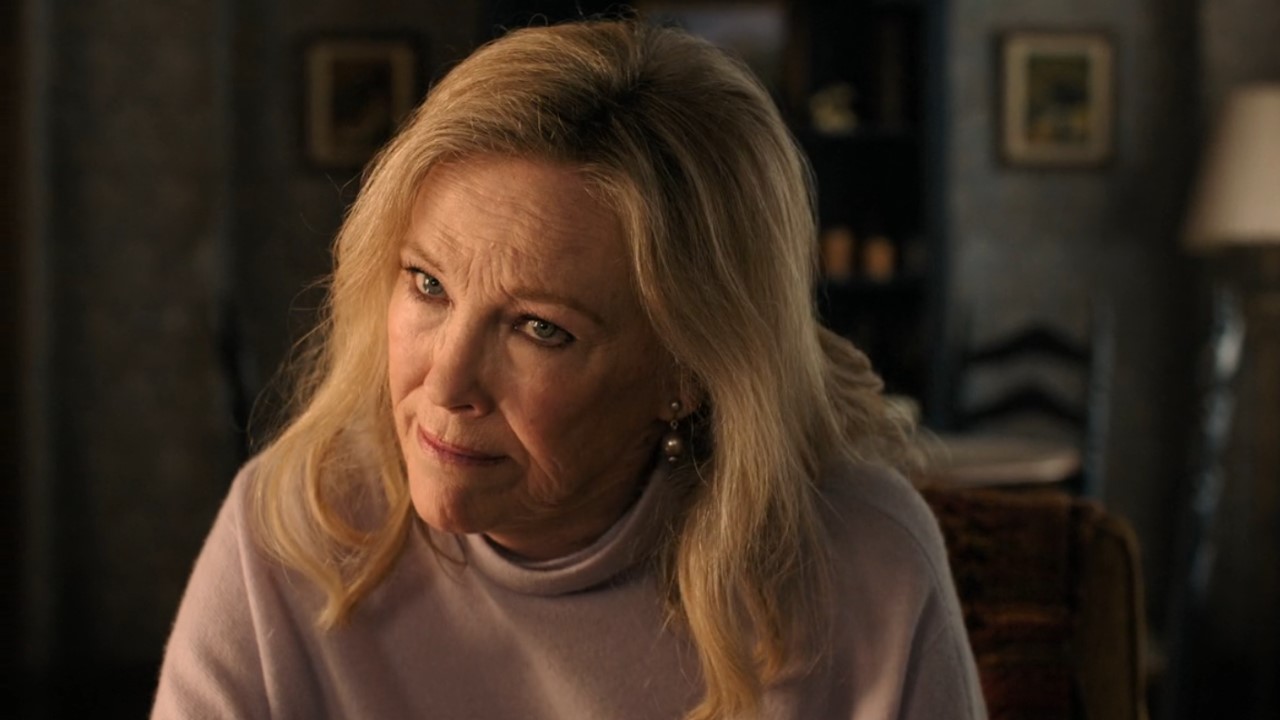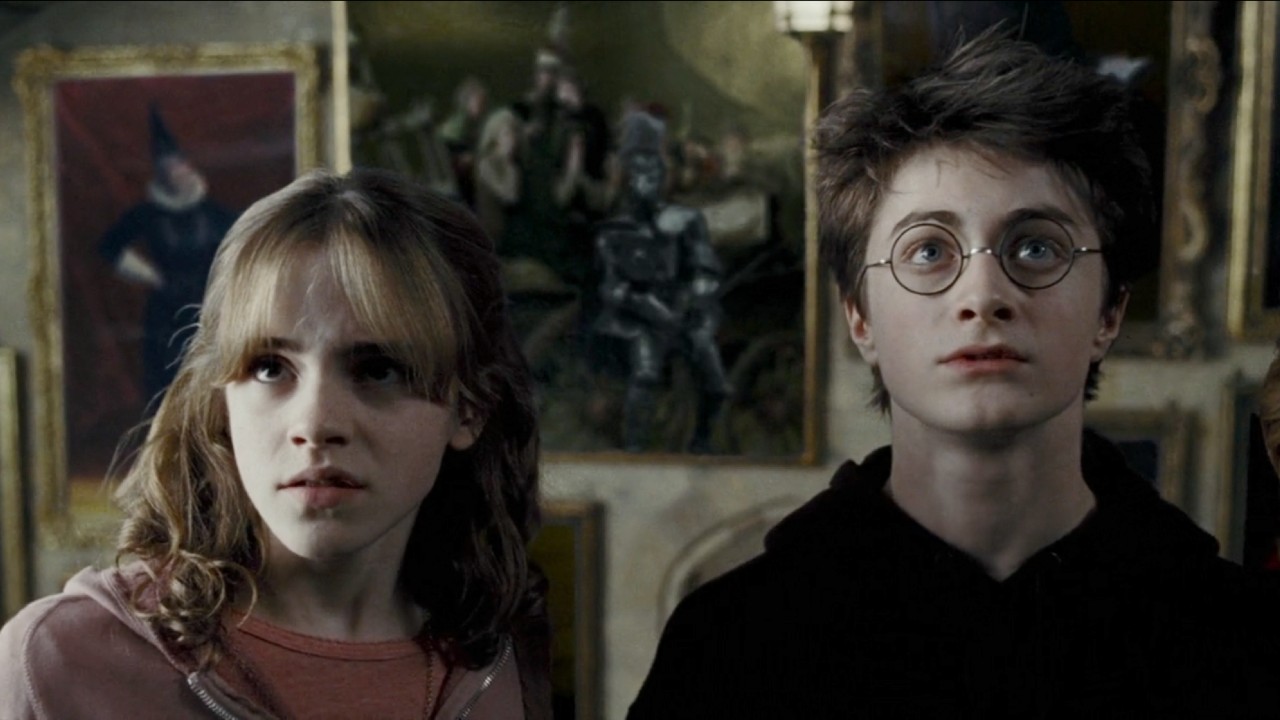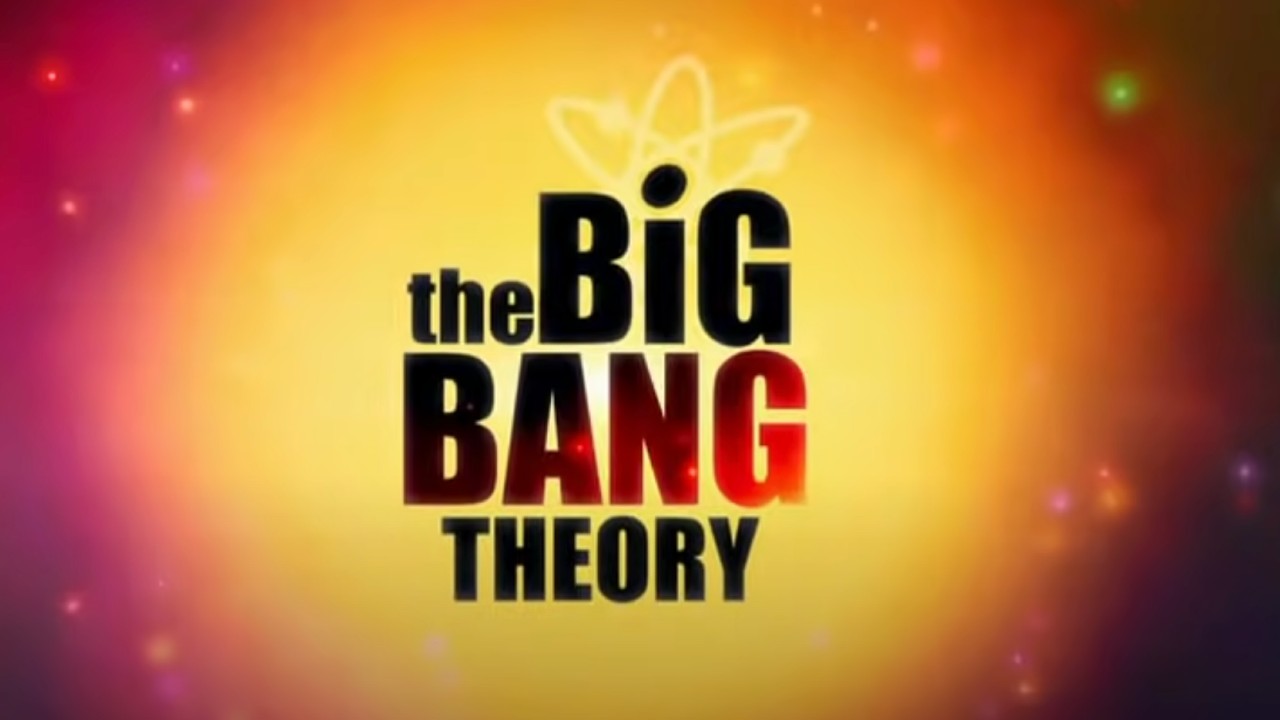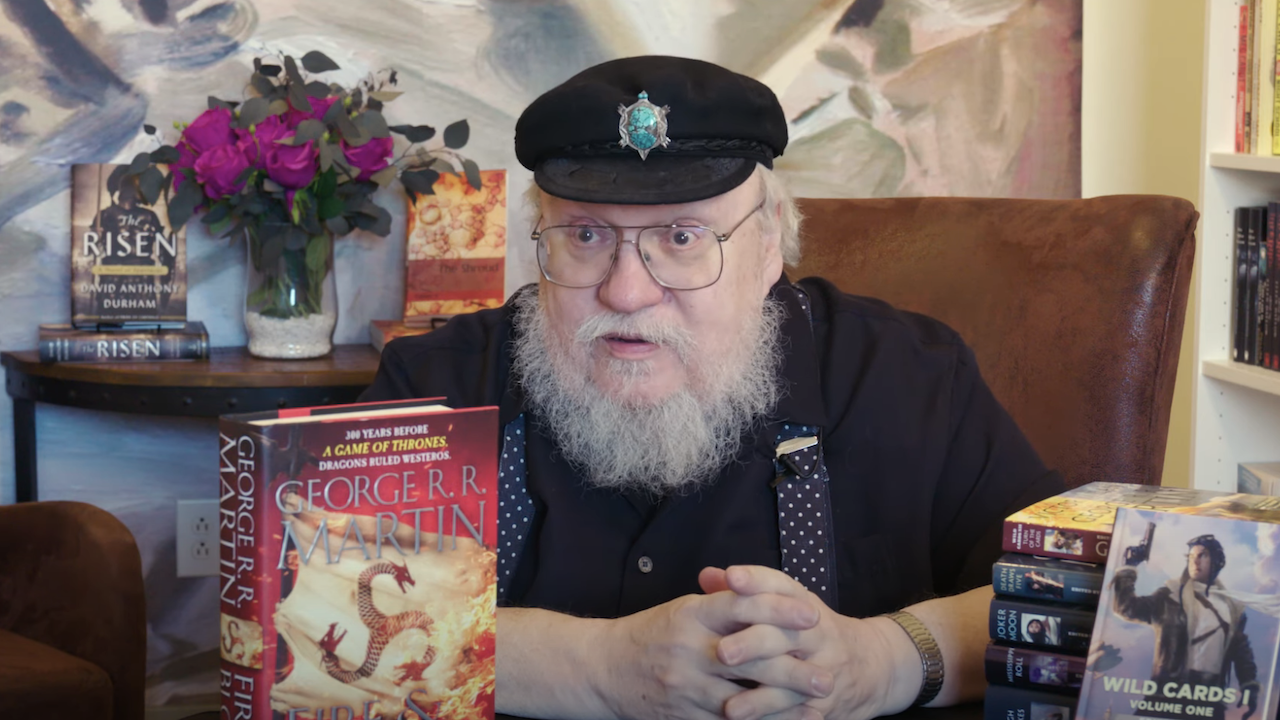Interview: Stargate Atlantis Joseph Mallozzi And Robert Picardo
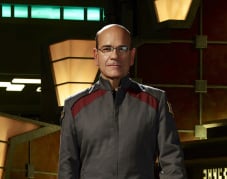
The popular Sci Fi series Stargate Atlantis is about to return with a new season this Friday night. We had the opportunity to sit in on a conference call with Stargate executive producer Joseph Mallozzi and actor Robert Picardo. They were kind enough to answer questions about the series, fan reactions, the characters and the upcoming season.
Since the interview’s pretty long, we cut it up into parts. Here’s the first part. As they talk about the new season, consider yourself spoiler-warned!
Season 5 of Stargate Atlantis will premiere on Friday, July 11, 2008 at 10:00 p.m. on the SciFi Channel
PART 1
I’m anticipating this hotly discussed script, “Whispers”. It’s got a horror tinge and I was wondering if you could elaborate?
Joseph Mallozzi: Okay. You know, I’ve always been a big fan of horror and one of the things that - you know, one of the great things about Stargate is that we can do such a variety of different types of stories. I mean, we do our funny episodes. We do our serious episodes, the off world episodes, the ship based episode. And I just realized that we’ve never really done a horror episode. And we’ve done monster movies but never really kind of a scare fest. So I mean, you know, I pitched stuff to the guys and they really liked the idea. And I spoke to Will about it and he’s like yeah - Will Waring, who is our Director who directed the episode and he’s also a big fan of horror movies.
So we actually did a little mini horror movie for the episode, "Whispers". What we did, Joe Flannigan and Paul McGillion -- two of our regulars -- joined a team of - an all female team on an off world adventure.
CINEMABLEND NEWSLETTER
Your Daily Blend of Entertainment News
I mean, one of the things about TV, (office) episodic television in general is, at the end of the day you kind of know that your heroes are going to come out of it in one piece, more or less, unless you happen to be Carson Beckett (and trend A) or what have you.
So I thought I was important to add this all female team for kind of two reasons. One, with Amanda leaving, I thought there was kind of a gender imbalance in the show that I kind of wanted to address by bringing in, or at least introducing some potentially recurring female characters. And two, have the audience invest in characters that you don’t really know whether they’re going to survive or not. And it was just really a fun episode. I went by a couple of days ago and Mark Savelo, our VFX Supervisor, he was just showing me some of the temps on the visual effects and gosh I hope it’s not one of these episodes that angry parents write the network about.
Hopefully, it’ll be an atypical episode and I’m hoping that people will enjoy it - especially fans of the horror genre.
What’s coming up story wise and for the teams this new season, and how it’s going to be different from previous seasons?
Joseph Mallozzi: In previous seasons - You know, season one was set up and season two was (telling). And season three, I think, we’re stepping out and exploring more, sort of a variety of stories.
Throughout those first three seasons, though, we were always I guess securing resources with SG-1 - be it a series or the movies and as a result I guess it taught you - because of the time constriction, we weren’t able to really sit back and plan out the season quite as concisely as we could have which is what we did in season four.
We realized okay, there was an imbalance in some of the stories being told. I mean, there were a lot of McKay stories but one of the things we set out to do in season four that we did in season five as well was, you know, give each character a story and then, you know, a spotlight and really focus on them, and give them a chance to really step up.
And we did that again in season five. And where in season four we wanted to deal with some of our standing villains. We kicked off the Wraith/Replicator war. We got rid of the Replicators. We weakened the Wraith and now season five is kind of a step forward in a couple of ways.
One, in a big picture way we are introducing a couple of new races. We’re suggesting that with the Wraith weakened in the Pegasus Galaxy, there are a number of civilizations that are basically standing up and assuming power. So in a big picture way that’s what we’re doing.
In another big picture way we have a new commander on the Atlantis expedition with Carter leaving.
What we said in season four was, with the threats that Atlantis is facing -- especially with regard to Wraith -- the military essentially flexed their muscles and wanted to exert some influence over the Atlantis expedition. So Carter was appointed as a compromised candidate. In season five, with -- as we said -- the Wraith, back on their heels the (IOA) in turn flexed its muscles and they appoint Richard Woolsey as the new interim leader of the Atlantis expedition. And that will be a big change and frankly, it’s been a great change. We’ve been big Bob Picardo fans for years and what started off as a couple of episodes in Heroes and through a recurring role which eventually when the opportunity presented itself there was no hesitation. We said, if Bob can do it, we would love to have him on the show and Bob was kind enough to make time for us I guess.
Robert Picardo: This is very interesting for me to listen to as well because I find out, all the secret things that the Executive Producer has in store. I was a little worried momentarily when he made reference to a bit of a gender imbalance. I thought that by Episode 20 perhaps he’d be given full reign to (pull) the feminine side - at least that he’d be, cross-dressing on the base. But I’m happy to hear that that’s not in the planning.
I look forward to seeing you in the new role - or bigger role, I guess, is the word.
Robert Picardo: Well thank you. I appreciate that. I’m looking forward to seeing how the, you know, the dedicated fans of the show accept the new leader who is not nearly as cute as the previous two.
Joseph Mallozzi: Some fans may argue differently. Sorry.
A question for Robert. You haven’t gotten to talk enough yet. How did you get mixed up with these guys on this level? Was it as simple as them asking and you saying yes?
Robert Picardo: Yes, I think they have a tradition of using actors from the other franchise, the name of which I dare not speak, as some casting. Many of my colleagues from the different Star Trek shows have been guest stars. And I think that they either last from one to four episodes. In fact, I think around the fourth time they asked me back, I was flipping to the end of the script to see if I was killed yet. But I managed to outlast them all and it’s been a lot of fun working with both casts, and with the Writer/Producers. They’ve really built the character from his initial impression of being kind of a hardnosed, you know, a vicious blame layer.
I call the characters that are coming to find out who has screwed up and whose head is going to roll in his initial appearance. And in Heroes: Part 2, they really fleshed him out. Although he still has kind of insufficient people skills perhaps to be a leader, he’s developing them now that he’s assumed command. I think there’s something inherently interesting in the Monday morning quarterback, the guy who, you know, sits at one end of the briefing room and tells everyone what they should’ve done and how they’ve screwed up.
Now that he’s suddenly making the decisions himself, it’s a very interesting dynamic that has its own kind of built in dramatic tension. He’s used to evaluating others but not to having that responsibility rest solely on his own shoulders. And in fact, we have an upcoming episode where his own new command will be evaluated by someone who’s taken over his old position. So there’s a lot of fun layers to explore this year.
Are you drawn to Sci-Fi? Is there something about the genre that pulls you in or is this almost also sort of like all of the people that make Sci-Fi, they watch Sci-Fi and that puts you on their radar, and they know to reach out to you? Is it - or is it some combination of both?
Robert Picardo: I think it’s a combination of both. I’ve been working on Star Trek for -- there I said it -- for seven years, I really came to appreciate what it was about that kind of storytelling that developed such a loyal fan base - that, you know, the regular viewer of science fiction has the interest and the capacity to really imagine the future, to dream of a better one and to kind - and I think even to project themselves into the future in a certain way, that that’s part of their psyche and personal passion.
That’s why they watch this kind of program. And once I appreciated what it was about the storytelling that made it special and that made the fans so loyal, I really began to enjoy it and I think to flourish in it as an actor. I really used my own imagination a lot and made a number of suggestions during my tenure on Star Trek. But also, I - because the fan base is so loyal, they like seeing an actor that they know from one show take on another role in another of their favorite shows. So it does work both was. I can’t honestly say that I set out at the beginning of my career to spend, you know, ten years in a jumpsuit. It keeps you in the gym regularly as well.
One of the challenges that you had in Star Trek was a hologram real to people but isn’t that the challenge that you always face more or less with any character you do, just like right now?
Robert Picardo: Of course. When an actor gets a role, especially in series television where he really is the part. The audience never thinks of another actor playing that role. If they accept you in the role, then they can’t separate the actor from the character. But we always have to devote a lot of attention and imagination to what the character’s back-story is, where he comes from, what his education is, previous work experiences and his personal life, and all of that stuff that’s off camera that will help inform the part that’s on camera.
With Woolsey, his back-story was sort of slowly revealed through various guest appearances. It’s not like when I set out at Star Trek, I made all the decisions and just - and set on my journey with what I understood the writers wanted from that character. And of course, it was different from any other character I played because when you’re playing a new technology that’s basically booted up in the first episode, you have no back-story. So that was the challenge of that role because there was really nothing to depend on. It was starting with a clean slate and building the character piece by piece.
I have to tell you though after seven years as a hologram, I’m happy to be back playing human beings. I was afraid of getting out of practice. So I’m glad to be flesh and blood again, and to have the ability to change and even to age. Nobody wants to play - I’ve talked to Brent Spiner about this. You don’t want to play a character indefinitely who’s not supposed to age.
With the first half of season five already on film, what would you say will be the turning point for viewers and ratings while continuing the second half and potentially a sixth season?
Joseph Mallozzi: The turning point? You know, I’m kind of hoping - it’s not so much a turning point but a build from last year’s strong finish. I don’t recall off the top of my head what the numbers were but, I know that, “ Last Man” -- our season finale -- finished very strongly. And hopefully that’s something we can continue with the premiere: “Search and Rescue.” You know, and I’m sure some of you may have seen it along with the few thousand who happened to be cruising You Tube over the weekend or a couple of - last weekend.
And the reaction was overwhelming, positive from what I saw. I think it’s awfully indicative of what’s to come this season, a variety of action, character development, hopefully what the fans have grown to love and really desire from the show. In terms of standout episodes, off the top of my head I’m very happy with the first half. But of course, one of the big episodes -- sort of like last year – “Be All My Sins” was a big midseason two-parter - the second part of the midseason two-parter.
In a similar way, the midseason two-parter is going to be very big this year. It’s “First Contact” and “The Lost Tribe.” And of course, Daniel Jackson will be dropping in for an appearance and that’s going to be huge for a lot of the SG-1 fans who I’m sure have missed him and, have been asking what the hell is taking so long for Daniel to come on over to the Pegasus Galaxy.
Well they get the chance in the midseason two-parter. And, you know, like last year’s “Be All My Sins Remembered,” it’s full of surprises and action, and spectacular visual effects and some really nice character moments, particularly with regard to McKay and Daniel Jackson who are two characters that really haven’t had a chance to sort of play off each other. And they play off each other really, really well. I mean, one of the things I said was these two guys -- Hewlett and Shanks -- are the fastest talking actors in Sci-Fi bar none. And as a result Martin Gero wrote both scripts and they were almost like 60-page scripts which is - there are usually, a 60-page script is usually long. And I think “First Contact” was exactly to (top) and I’m not sure what “Lost Tribe” was - maybe a minute over. So, a lot of rapid fire talk between the two. And hopefully it’ll be an episode that the fans will love just as much as last year’s midseason two-parter.
You talk about character development and we’re going back to Woolsey - what adjustments will we see as Woolsey takes over as the new leader of the Atlantis expedition versus previous appearances where he was a little indecisive or trying to take control, et cetera? What adjustments will we see?
Robert Picardo: Woolsey appears briefly at the end of the season opener, “Search and Rescue,” which is a very exciting, action-oriented episode. He comes in and rather abruptly relieves Carter of command with his characteristic gruffness and lack, I think, of interpersonal skills. So that’s your first experience of him. In the very next episode, which is called “The Seed,” he faces the first major crisis at his new command. It’s a very dramatic outing for the character. There’s not really much humor in that first one. And he learns the lesson that he can’t simply follow the rulebook and do this job. I mean, he - by his own estimation, he’s broken protocol about five times in his first crisis. And that puts him -- at the end of the show -- in a personal crisis because he’s always sort of defined himself as someone who knows the rulebook, evaluates others ability to live by it and now in his first series of crisis command decisions he’s broken his own commitment to protocol and - in order to save a beloved member of the crew.
So he learns and in so doing - and so having that conflict, I think he earns the respect or the beginning respect from Colonel Sheppard because he demonstrates a capacity that he hasn’t shown thus far. The very next episode of “Broken Ties,” although there’s plenty of adventure in the A story, there’s also kind of a B story of Woolsey getting used to the technology of the base. He’s the kind of guy who will end a briefing room meeting and tell everybody what to do. And then because they are - he’s a little late following everyone out the door, it’s because he’s collecting his notes.
Then he doesn’t know how to get out - he doesn’t know how to open the door. I mean, he’s running the base but he doesn’t know how to use the technology yet and literally can’t get out the door. And there are two or three quite humorous moments, throughout that episode. And what was gratifying for me as the performer is that it shows right off the bat that the character has the gravity in the dramatic situations but they can also use his settling in and his own character (foils) to get some comic moments as well.
Joseph Mallozzi: One thing I want to add with regard to those three comic beats - well the last one I don’t want to give too much away, but it’s a last scene were we find Woolsey in his quarters. It was actually pitched out by Bob at the beginning of the season and he said you know what I think would be great for the character? I would love to do this and we thought about it. I pitched it out in the room. I said, Bob pitched this and everybody loved it, and we worked it into “Broken Ties.” So, when you watch that moment just keep in mind that that was Bob’s idea.
Robert, are you worried at all about the shoes that you have to fill with Amanda being such a loved part of Stargate?
Robert Picardo: Of course. In the same way that when I got my role on Voyager as the artificial intelligence character in that cast, I was concerned that I would be measured against Brent Spiner’s character because he’d been the android on the Next Generation and now I was the hologram on Voyager. But nonetheless, we were going to mime some of the same issues and storylines. And I thought he had done that so successfully and was so popular that I would inevitably be measured against him.
Fortunately in that case, I was defined by the writers and as much as I could by my own work as differently as I could be from him, and it turned out to be a non-issue, I think. And I not only am a fan of Amanda as a character on the show -- I think her work is wonderful -- I’m a huge fan of her personally. She is one of the loveliest people you will ever meet and work with.
So there’s a lot - both as an actor and as a character, there’s a lot - it’s a loaded situation to walk into. Fortunately, the rest of the cast has been very welcoming to me and also Amanda left, of course, for a spectacularly successful reason and that is to star in and produce her own new series for the Sci-Fi Channel. So although it’s daunting to replace such a popular character, I like to think that I’m not replacing her, that I’m simply - that she’s moved on. There’s always the hope that she’ll come back and make guest appearances on the show and that the, you know, that the audience will not only enjoy watching me in the role and develop it - to see a character who’s not really cut out to be a leader try to build himself into one.
Joe, I was wondering if you could talk about your favorite memory of Don Davis?
Joseph Mallozzi: I’m sure you guys all heard the very - the heartbreaking news that Don passed away on Sunday and I just heard about it yesterday morning. And last night I just stayed up and I wrote up a special blog entry for him, in his memory. I don’t know if there’s a specific memory. I’m sure all you guys know better than anyone that people come across great in sort of a public persona but when you actually sit down to meet them face-to-face, a lot of the time they’re not quite as, I guess, likeable and their on-screen personas.
With Don, I think he had a bigger heart, was even nicer than the Hammond character that he played. He was one of the first actors to warmly welcome me to the set way back in season four. We became friends. I - over the course of my nine years of working on the show, I’d say that I’ve enjoyed working with a lot of prime people but in all honesty, there are only three that I would be bold enough to call my friends at this point.
One was Chris Judge. The second is the guy who’s on the conference call with me today, Bob Picardo, and the third was Don. He was a very easygoing guy and I guess one of the best memories I have of him is that the occasional (calm) that I attended. And I’d see kind of the fans approach him with a certain amount of trepidation. Some fans were somewhat reticent to. I guess fans and really impose on him. But I mean, he was always incredibly welcoming and always very charmed, and charming to the fans. As I said in my blog, whenever fans would approach him, they would approach him as sort of, being - in a sense that he was - they were approaching General Hammond. But once they got to know him, they got to know really Don Davis who would be, a very warm-hearted, incredibly self-deprecating man who, sadly will be incredibly missed by not just obviously the fans but any and all - anybody who ever worked with him.
Robert, with SG-1, obviously it was very successful. It was on the air for ten years. Now with Atlantis, you guys are going to mark your 100th episode this season. To what do you attribute the success of the Stargate universe?
Robert Picardo: Well, I think - it’s hard for me to separate my feelings from - I’m a guy who came from seven years on the competing franchise so when I look at what Stargate does well in comparison to where I’ve been before, I think Star Trek does some things very well. It’s very philosophical and cerebral. But its formula is very different from, I think, the success formula that Atlantis does. Atlantis does action adventure extremely well but most importantly, to me, it has this sort of breezy humor, this ability to wink at the genre that Star Trek cannot have. Star Trek just has to be - has to take itself very seriously. That’s the mold. And Stargate Atlantis and certainly Stargate SG-1, you know, I think a lot of it has to do with the fact that Richard Dean Anderson was the first Stargate star on television and his characteristic humor. It has the ability to really let the audience in on the good humor, the joke of the fact that we know we’re going to save the world every week and that we can wink at that a little bit and have that kind of fun with it.
So to me, the offhanded humor of the show is what I’m enjoying the most and what I find most exciting having come from sort of a more rigid formula background. Not to take anything away from my former employer and what it did well and continues to do well, but I think that that combination of action adventure and humor that’s very much in the - sort of the Indiana Jones style is what I find the most fun.
With Stargate, obviously there’s so much back-story, there’s so much really good mythology. I’m wondering about attracting new fans. What is it about the series that would make it attractive to someone who’s never seen it, who wants to start picking it up in season five?
Joseph Mallozzi: Well one of the nice things about the show is that despite the fact that it does have a significant amount of mythology, it’s not really serialized. I mean, there’s an overall season to season arc but it’s a very easy show to get into just because we do so many standalone episodes like, for instance, “Whispers” that we were referring to or last year, “Harmony.”
You’ll always have a little connection to the past episodes. But it’s not really a serialized show where basically you really have to have watched the previous seasons or even the previous couple of episodes to know what’s going on.
Like I said, one of the great things about the show is the variety of the types of stories we tell. You know, serialized versus standalone is one example of that.
I was wondering how do you reinvent yourself as an actor after such notable roles?
Robert Picardo: Well I think that that’s what attracted me to become an actor is exactly that challenge, that every time out you’re creating creating someone different. So it’s not so much how. I’m chomping at the bit to do that all the time. And what’s wonderful is when you get the opportunity to do it. So I don’t look at that as - that is the fun part. So that’s never a chore. And what I - I’m also hoping - this is sort of a reference to the previous question as well. I’m certainly hoping to bring whatever Star Trek fans are out there that haven’t sampled Stargate, you know.
I don’t think there are that many of them because there’s a lot of crossover in the fan bases. But I’m hoping that if they were fans of mine from Voyager that they will - and they don’t know Stargate, that they’ll come and sample the show because it’s a great time to get into the series because they’re going to follow my character’s - my character is starting out this year - really starting out as the commander. So that’s a great window into the series if you haven’t watched it before because you’re going to experience it, you know, from the beginning of my tenure and my journey will kind of be linked to yours as a new fan.
So I’m hoping that those 77 Star Trek fans out there that haven’t watched yet are all going to join and are all going to be sitting in front of the TV on July 11.
Now in terms of Woolsey, how can leadership evolve out of someone who’s not a leader?
Robert Picardo: Well again, that’s the fun part. When I - when Joe first called me last November and said how would you like to assume the command, my initial response -- which I don’t think I said out loud -- was you’re kidding because I didn’t think of the guy as the leader. He’s the theorist. He’s a briefing room guy and not a real event guy. He’s not the guy who’s used to being in the fray. In fact, we had a certain amount of comic mileage on Atlantis by having him put in dangerous circumstances, and he’s not a very heroic guy.
So I think that my initial surprise at the offer turned out - sort of then transformed itself into the most fun part of the challenge. Again, we’re in a world now were everybody changes careers several times during their lifetime and supposedly our children’s generation will change them as many as a dozen times throughout their lifetime. So to see a guy in, you know, in middle life or even a little behind middle life going I now have to put aside everything I’ve done thus far and done successfully thus far, and try to reinvent myself.
It’s an interesting challenge and a fun one, both as an actor and a character. So I’m really having a ball. And it’s exactly because he’s an unexpected choice for this job, and that’s what I think the viewers hopefully will respond to as I have.
Did you like Woolsey from the (start)?
Robert Picardo: Did I like Woolsey?
Yeah, did you like him or did he have to grow on you?
Robert Picardo: No, when I first met him - when I first made my convention appearance - his personal appearances that of course, all the science fiction actors make, after two or three appearances as Woolsey and this character - I would be asked questions about working on Stargate and they’d say I really like your character. And I would say you’re kidding because I thought of him as kind of a jerk early on. But again, his very second appearance which I think was called “Inauguration,” you saw that even though he rubbed people the wrong way and was seen as someone who came in only to find out who’d screwed up and as I said, assign blame - that at least he was driven by a personal passion that was quite positive and ethical. He really believed in the importance of civilian oversight of a secret military operation so that a rogue element did not come in and take it over, and would no longer serve the interest of, you know, of the public.
So the fact that he really - the audience responded, I think, right away to the fact that Woolsey meant well even though he - you know, even though he annoyed people. And in subsequent appearances, the writers fleshed him out, gave him some foibles and made him, you know, I think gave him his own kind of weird charm so that I think that - and that journey hopefully will - is continuing right now in season five.
So I think that it was a bold thing for the producers to do, to pick a guy like this who did not - you know, doesn’t seem to be necessarily the first choice for a leader, but to have him try to make himself into one, I think, is the really interesting and creative choice.
PART 2
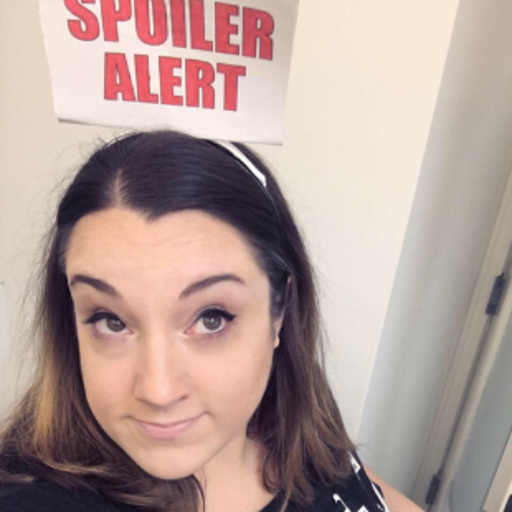
Kelly put her life-long love of movies, TV and books to greater use when she joined CinemaBlend as a freelance TV news writer in 2006, and went on to serve as the site’s TV Editor before joining the staff full-time in 2011 and moving over to other roles at the site. At present, she’s an Assistant Managing Editor who spends much of her time brainstorming and editing features, analyzing site data, working with writers and editors on content planning and the workflow, and (of course) continuing to obsess over the best movies and TV shows (those that already exist, and the many on the way). She graduated from SUNY Cortland with BA in Communication Studies and a minor in Cinema Studies. When she isn't working, she's probably thinking about work, or reading (or listening to a book), and making sure her cats are living their absolute best feline lives.
